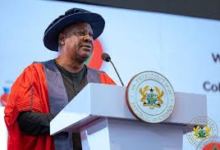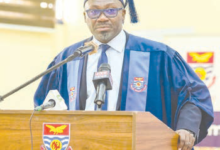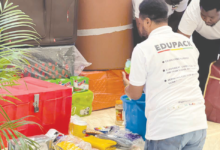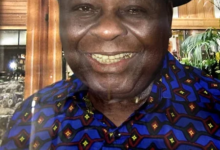Consultative meeting on disaster risk reduction ends in Accra

A two-day consultative meeting to harness stakeholder efforts at reducing disasters in the country kicked off in Accra yesterday with a call on Ghanaians to make personal investments in minimising the tendency.
National Director of Training at the National Disaster Management Organisation (NADMO), Mr Koranteng Abrokwa who gave the advice said it was time Ghanaians cleared misconceptions held that disaster risk management was the sole prerogative of the disaster management organisation.
“As individuals and institutions, we must invest time, efforts and resources in disaster risk reduction (DRR). We know what is right but we fail to do so; our attitude to the environment, failure to adhere to preventive measures and other behaviours increase our risks to disasters and it is time we own our safety,” he said.
The meeting jointly organised by the National Development Planning Commission (NDPC), the Cities and Climate Change Project Steering Committee of the Regional Institute for Population Studies (CCCPSC-RIPS) of the University of Ghana (UG) and NADMO, was on the theme; “DRR; the Future of our cities.”
It brought together representatives from the various Municipal and District Assemblies (MDAs), civil society organisations, academia among others to promote effective mainstreaming of DRR in planning frameworks at all levels in line with achieving targets of the Sustainable Development Goals (SDGs).
Mr Abrokwa noted that Ghana as a signatory to the Sendai Framework on DRR in 2015 had performed creditably but a lot more needed to be done in strengthening existing structures to minimise disasters.
The Sendai Framework is a 15-year voluntary, non-binding agreement which recognizes that a state had the primary role to reduce disaster risk by sharing the responsibility with other stakeholders including local government, the private sector and other stakeholders.
He asked Ghanaians to heed to early disaster warning signs often divulged by NADMO to better manage or at best prevent disasters pointing out that, “People take our warning notices for granted.”
“It is sometimes painful that people disregard our warnings and the expected happens. As citizens, we need to overhaul our minds and behaviour in addressing disaster risk reduction. Let us adhere to the sensitisation we put forth and show high interest in disaster risk activities,” he advised.
Coordinator of the SDGs Implementation Committee of the NDPC, Felix Addo-Yobo intimated that Ghana was expected to present a report on DRR in the Voluntary National Review (VNR) to track progress towards the implementation of SDGs come July 2019.
To that end, he believed it was important that stakeholders opened up discussions on DRR to identify successes chalked as well as address challenges in managing disaster in the country.
Mr Addo-Yobo highlighted threats of flooding, climate change, road accidents, collapse of buildings, and in recent times earth tremors, among other disasters that continue to plague the country and the need for increased efforts to “build robust and resilient communities and cites that could quickly recover from disasters.”
“We must confront disaster risk reduction head on and move away from the talk shops because it has implications for the economy and the socio-economic development of our country so that we do not leave future generations with a destroyed Ghana,” he urged.
Mr Wise Ametefe speaking on behalf of the Chairman of the CCCPSC-RIPS, UG, noted the need to address issues of inequity in “planning, mainstreaming development planning and infrastructure designs that rely on resilient flood indicators and other climate elements to reduce cost associated with disasters.
He called for “rigorous scientific data which minimises barriers to science-policy outcomes” through stronger partnership to achieve goals 11 and 13 of the SDGs.
By Abigail Annoh






